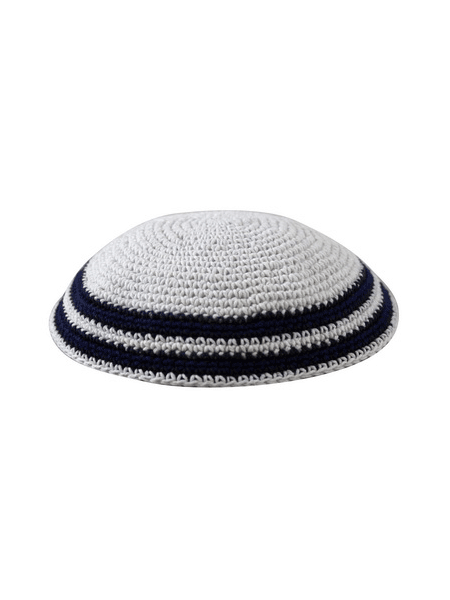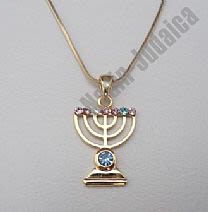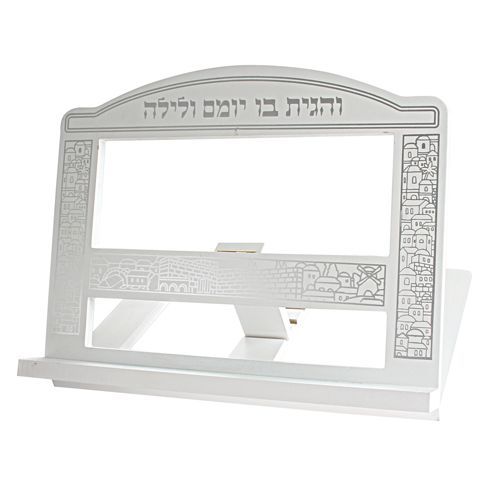
Lech Lecha: Stand By Your Man
Sarah's trust in G-d and in her husband was so great that it outweighed any natural attachment to her abode. She walked beside him every step of the way…

Parshat Lech Lecha
BESIDE HER HUSBAND EVERY STEP OF THE WAY
“Avram took Sarai his wife, and Lot his brother's son, and all the stuff that they had gathered, and the souls that they had made in Charan” (Bereishit 12:5). Avraham is famous for his willingness to leave his land, birthplace and father's house in order to follow G-d to an unknown place. Yet, let us not forget the tremendous faith of his wife Sarah, who followed her husband without a word of complaint. Mesechet Yoma says: “The home is the wife” (Mishnah 1). A woman is naturally more attached to her house than her husband, because she is the queen of her home. There, she has set up her cooking quarters and living space. She knows her way to the well. The grass and flowers on her path, like the faces of her neighboring friends, make up the familiar environment that brings her security and shelter. However, Sarah's trust in Avraham and G-d, Who had commanded her husband, was so great that it outweighed any natural attachment to her abode. Without even questioning her husband, she walked beside him every step of the way.
HER OWN SPIRITUAL SPHERE
Rashi learns from Bereishit 12:5: “the souls that they had made in Charan” that Sarah, as well as Avraham, was involved in the spiritual work of bringing people under the wings of the Shechina (Hashem’s Feminine Indwelling Presence in the world). While Avraham was busy teaching the men, a circle of women would crowd together in Sarah's tent to relish in the words of her wisdom. Besides making it possible for Avraham to teach people Torah by providing them with nourishing meals, in her own sphere of spiritual work she independently taught classes and converted women.
MODESTY – A JEWISH WOMAN'S PRIDE
“Every woman compared to Sarah is like a monkey compared to a human being” (Baba Batra 58). When the Egyptians spotted Sarah, they found her worthy to marry Pharaoh, on account of her striking beauty. “He said to Sarai his wife: `Behold now I know that you are a woman of beautiful appearance’” (Bereishit 12:11). Is it possible that Avraham was not aware of Sarah's beauty until now? Rashi explains that he had not perceived her beauty because of his -and Sarah’s – extreme modesty. The relationship between Avraham and Sarah was profoundly spiritual. Avraham was only aware of her inner beauty and holiness. Its outer, physical manifestation was not important to him. Likewise, Sarah did not feel self important because of her attractiveness. Rather, her modesty compelled her to hide her intense beauty.
ON ACCOUNT OF THE WIFE
After Sarah had been abducted and released by Pharaoh because of the plagues brought about through Sarah’s command (Rashi, Bereishit 20:18), he sent her away with gifts for Avraham: “to Avram he did well for her sake and he had sheep and oxen” (Bereishit 12:16). Why would Avraham receive presents in such a shameful manner, especially when he later refused to accept anything from the king of Sedom (14:23), although he had saved the king in war and was therefore deserving of his gifts?

Abarbanel notes that the Torah did not state “Pharaoh gave him sheep and cattle etc.” The language “…and he had” indicates that he had already these things in his possession and not that Pharaoh gave them to him now. This implies that the true giver of the oxen was Hashem, who also is the subject of the next verse. In this way, the Torah testifies to the righteousness of Sarah, for whose sake Hashem blessed Avraham. The Talmud concludes, “A man should always be careful to honor his wife, for the bracha is only in his house on account of his wife, as it says: `and to Avram he did well for her sake’… Baba Metzia 59). From here we learn that Avraham was not receiving a handout from a king of flesh and blood, but rather that he was accepting a blessing from the hand of Heaven.
THE “HEH” ADDED TO AVRAM DERIVES FROM SARAI
In this portion, Avram and Sarai's names were changed to Avraham and Sarah. This change is connected with their ability to have children. “Hashem said to Avram, Sarai, your wife, you shall not call her name Sarai, because Sarah is her name” (Bereishit 17:15). The Hebrew word for man and woman are “ish” and “isha.” The letters that distinguish them are the “yud” and the “heh.” Kli Yakar explains that Hashem exchanged the masculine “yud” of Sarai's name with the letter “heh” in order to empower her with feminine energy and enable her to give birth. Hashem created the world with the letter “heh.” Therefore, this letter is endowed with the power of procreation (Bereishit 2:4; see also Rashi ad loco). The “yud” has the numerical value of ten whereas the “heh” equals five. Thus, the “yud” of Sarai's name equals the sum of both the “heh” with which it was exchanged and the “heh” that was added to Avram's name. The “heh” with its birthing power was added to Avram's name from the “yud” of Sarai to indicate that it was Sarah's merit that caused both of them to give birth to the progenitor of the Jewish people. Whereas Avraham was the father of many nations, Sarah was selected to be the mother of the Jewish people, alone. Therefore, Jewish descent follows the mother.
FIT TO BE A RULER OF THE WORLD
Regarding the change of Avraham's name, the Torah states, “your name shall be…” Whereas by Sarah, it simply writes, “Sarah is her name.” The Ran explains that Avraham was not worthy of being called Avraham until after his Brith Milah (circumcision). Sarah, however, had no imperfection and was ready to be ruler over the world even before Avraham. Still, she had to wait until Avraham had perfected himself; only then could her true nature be revealed to the world. “I will bless her and also give you a son from her, and I will bless her and she will become nations, kings of people shall be from her” (Bereishit 17:16). Just as Sarah followed Avraham towards an unknown destiny for the sake of G-d, so did she have an equal share in his mission as the leader of many nations; as it states, “Sarai she is Sarah. First she was a ruler to her nation and in the end she became a ruler to the whole world” (Berachoth 17a).
(Rebbetzin Chana Bracha Siegelbaum is Director of Midreshet B’erot Bat Ayin in Gush Etzion. This article is an excerpt from her book Women at the Crossroads: A Woman’s Perspective on the Weekly Torah Portion, reviewed by The Jerusalem Post, The Jewish Press, Voices Magazine, Good Reads, and WordPress/JewishPress and more. To order this book, click here)











